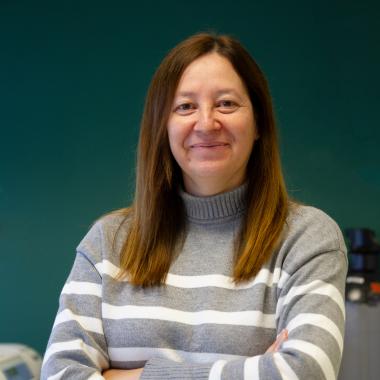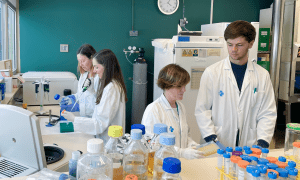The group evaluates HIV pathogenesis and bladder cancer to develop new therapies against these diseases and identify biomarkers to predict response to treatments
HIV pathogenesis in lymphoid tissue
HIV infection can be viewed as a mucosa-associated disease whose pathogenesis is divided into two phases:
-
An acute phase, associated with a massive loss of CD4+ T-cells from the mucosa, especially in the gut-associated lymphoid tissue.
-
A chronic phase, responsible for gradual destruction of peripheral blood CD4 T-cells, characterized by high immunological activation and massive production of pro-inflammatory cytokines.
The mechanisms of destruction of CD4 T-cells and the reasons for incomplete immune recovery in gut-associated lymphoid tissue (unlike peripheral blood), despite antiretroviral treatment, is a current focus of debate. This difference between blood and tissue has highlighted the importance of assessing the impact of the virus not only on antiretroviral therapy but also on lymphoid tissue, as this is where latent viral infection (viral reservoir) is established. Studies in this area are therefore necessary to achieve total eradication of the virus. Our group evaluates viral pathogenesis for HIV and SIV and the impact of antiretroviral drugs on the tissue of both HIV+ individuals with different levels of viral and/or immune control and healthy donors (ex vivo models).
Bladder cancer
The group has launched a new line of research into bladder cancer, a leading cause of death in men, after prostate, lung, colorectal and stomach cancer. Spain, which has among the highest incidence and mortality rates in Europe, reports an average of 12,200 new cases per year. Furthermore, incidence has increased in recent years.
Around 75%-85% of patients present with cancer confined to the mucosa. The initial treatment is transurethral resection, although immunotherapy with Bacillus Calmette-Guérin (BCG) has been the most effective local treatment in reducing recurrence and limiting progression.
The precise mechanisms and molecular mediators of tumour control after BCG therapy are unknown and there is no known marker to predict clinical response to BCG. Such a marker would be invaluable, as it would reduce mortality, avoid comorbidities and save on the cost of ineffective treatment. The ultimate goal of our research in this area is to identify factors that predict response to BCG treatment and design new therapeutic strategies.









